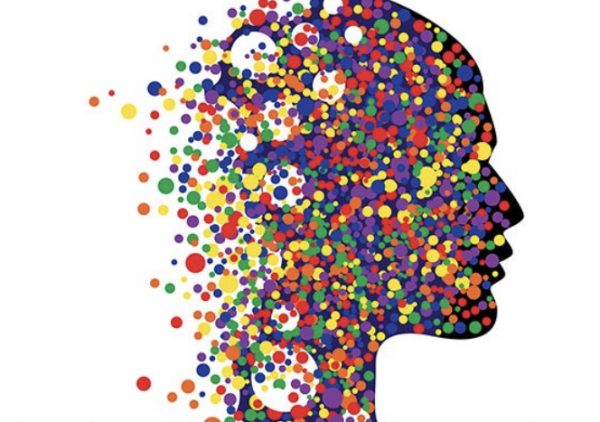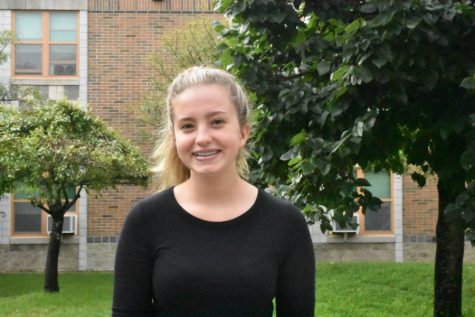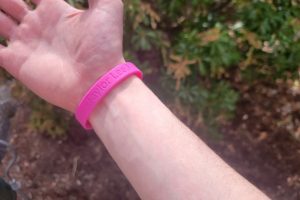Quarantine challenges mental health in WA students

Illustration of mental health.
April 15, 2020
The past month has been anything but normal for the students at WA. COVID-19, more commonly known as the coronavirus, has hit the US and has interrupted the daily lives of pretty much every citizen. Schools across the country including WA have been closed, and families are ordered to quarantine themselves.
With everyone stuck inside, how are WA students maintaining their mental health? No longer can teens go out with friends or out to eat. Students’ daily routines have been turned upside down due to the fact that no one has to set an alarm in the morning for school. Many teenagers have expressed that they are feeling socially isolated and that being quarantine has made them lonely and lost.
Junior Katelyn Ditto highlighted that feeling of not being able to see any of her friends during the isolation.
“My friends have helped me through many times in my life where I needed to get out of the house. I have not had the ability to be able to go out and see other people besides my family” Ditto said.
Katelyn is not alone. Many other students miss their friends and being able to get out of their house. Senior Elle Whitehead expresses her struggle with being physically distanced from her friends.
“I’m very extroverted, and I love spending time with people; it always cheers me up when I’m having a bad day, so it’s been hard not being able to see people,” Whitehead said.
One important thing that many WA students have not been able to do is see their therapist regularly in their offices. Not having this outlet and a person to talk to can affect one’s mental health. The good news is that many therapy sessions can be held either over the phone or through a video chat like Zoom.
“I feel that my depression has become worse because of quarantine. I am a people’s person and I like going out. I was in a better place before quarantine and was able to see my therapist every other week and due to the quarantine I meet with her once a week,” Ditto said.
Ditto continues to open up about how her daily routine was interrupted due to the closing of WA. She talks about how she was so used to routine and that she’s still getting used to not having it anymore.
“The biggest shift in my routine is definitely the fact that I do not have a schedule and I miss having a schedule and a plan to my day. I was so used to my routine and then to have nothing to do took a lot of time to adapt to and adjust to and still I am not,” Ditto said.
Whitehead also adds a comment about her schedule being changed as well. She explains how she is always busy with some sort of activity, whether it’s school or an extracurricular.
“The biggest shift in my routine has been slowing down. I’m always crazy busy with school, extracurriculars, work, and hanging out with friends on the weekends, so I never used to be home much,” Whitehead said.
Whitehead still keeps up with the faculty at WA however, she has been reaching out to her teachers and guidance counselors and doing group counseling sessions with WA’s social worker Patti Lonergan.
“Talking to these people has definitely helped my mental health, as it makes me really happy and makes me laugh and takes my mind off of things,” Whitehead said.
The Ghostwriter had the chance to ask Ms. Lonergan some questions regarding how she is virtually keeping up with her students and how there are some challenges to this sudden shift to online sessions.
“The greatest challenge has been getting some students to buy-in to the counseling sessions that are being offered to them during the quarantine. At school, I can walk to or call a classroom and have a student sent to my office. To help offset that, I have increased my communication with parents to check-in on a student I have not heard from,” Ms. Lonergan said.
Though there are many obstacles to reaching out to her students, Lonergan shared some of the positive things that have come from this.
“There have been some great unexpected upsides; I have met siblings, parents, pets, and I have had a bunch of students give me a tour of their bedroom or house. It has allowed us to broaden our therapeutic relationship. We can truly empathize with one another, as we both walk through these uncharted waters together,” Lonergan said.
She also gave some excellent recommendations for students who are finding this quarantine particularly challenging.
“Some strategies to help with emotional management include keeping yourself on a daily schedule, changing out of your pajamas each day, keeping up with regular hygiene routines, staying socially connected with friends and families, staying physically active, learning new skills, demonstrating gratitude, communicating to others that you are struggling and ask for help. If you have a therapist, continue to engage in regular sessions through teletherapy,” Lonergan said.
Both Whitehead and Ditto are excited for things to go back to normal once this quarantine is lifted and WA opens its doors again.
“I can’t wait to spend more time with all of my friends again! I also can’t wait to do the little things like getting coffee and going out to dinner again,” Whitehead said.
Ditto also expresses her eagerness to get back to her daily routine.
“I am looking forward to going back to my normal day to day life. I miss seeing my friends and my family and working. I miss having a routine everyday and knowing what I will be doing” Ditto said.







